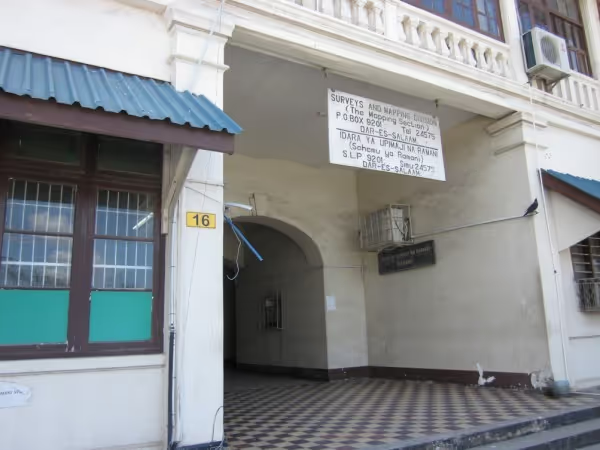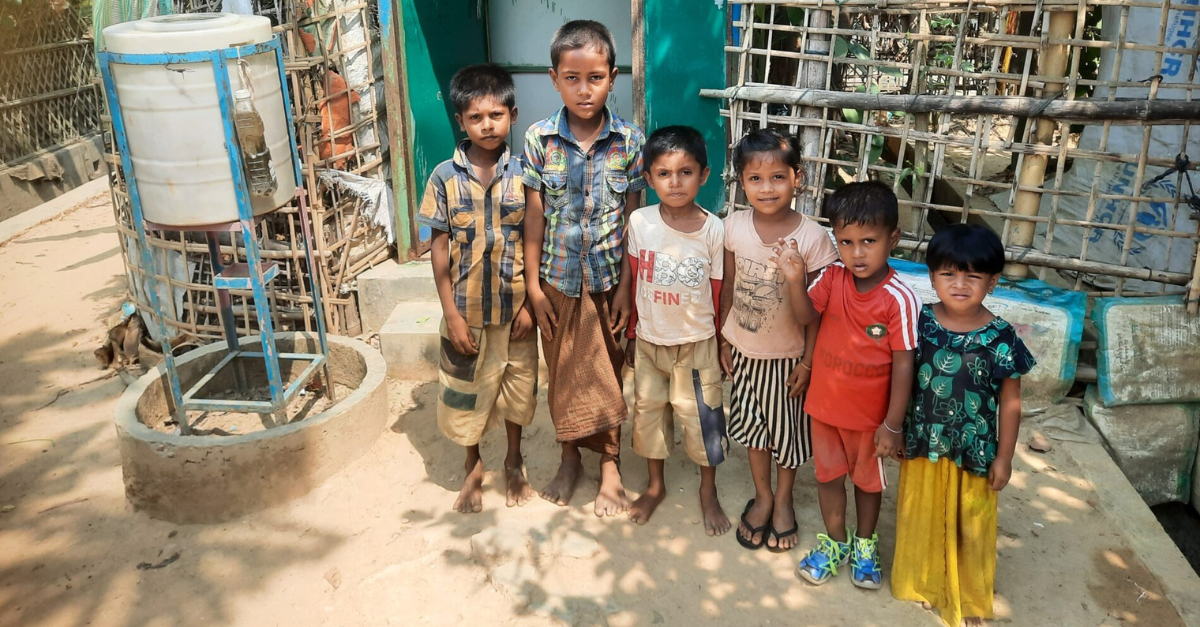RAM-OP: Preparation visit in Tanzania: 1: Looking for maps and population figures

The next RAM-OP field test, coupled with a classic SMART survey for comparison, is going to take place in Tanzania, in Kibaha District Council, west of Dar es Salaam. This district counts around 6,000 older people (60 years or more), and is largely rural. It is split in 11 administrative divisions (wards) and has more than 50 villages, each surrounded by hamlets. HelpAge has a long-term partner working with the communities, the Good Samaritan Social Service Trust (GSSST).
In order to prepare for the surveys, I went to Tanzania in June for a week, to meet with our local partners. My first visit was to the National Institute for Medical Research where I received useful and encouraging feedback on our application for the ethical clearance… A very crucial step for our project…
A big challenge was to obtain a detailed map of Kibaha District Council, as well as the latest population figures. We need population figures by the smallest possible division (egvillages) for the SMART survey, which is based on population-proportional sampling. To sample for RAM-OP, we need a list of all existing villages and hamlets organised geographically, to which we apply systematic spatial sampling. A map is then needed to locate the sampled villages for both surveys.
I was hoping to get this information from the National Bureau of Statistics (NBS), who has carried out a population census in 2012. However, they have not yet released the data by villages: we were able to obtain population figures and a district map for the 11 wards, and it will take a few more months before the information is available to the public for the villages. They could give us the results of the previous census (2002), but since that time, administrative boundaries have been modified: Kibaha District Council had fewer wards and fewer villages, and it is impossible to reconcile the two censuses.
With the NBS map showing only the wards’ boundaries, I still needed a more detailed document with roads and villages. I went to the Surveys and Mapping Division of the Ministry of Lands, Housing and Human Settlements Development: they have a map sales office there, and I was hoping to find what I needed. Unfortunately, their only map of the Kibaha area is dating from 1986, and though it shows roads, rivers and villages, there have been many changes since that time: the main road to Dar es Salaam has been redesigned and follows a different itinerary, and many new villages have been created. Moreover, in order to make any purchase from this office, you need to first go to a specific bank with a form to make the payment, and come back to the office with the proof of payment. Given the traffic problems in Dar es Salaam, this process is unlikely to facilitate the selling of the maps, and the resigned sales officer acknowledged that indeed, there were not many customers ready to purchase his maps…
In the end, we decided to customise the NBS map: we enlarged each ward, and our partner from the GSSST, who has excellent knowledge of Kibaha District Council, obtained a list of the villages and hamlets from the local authorities, and was able to position them in each ward.
As for the population figures we were lucky enough to follow a link on the NBS website, which led to the 2012 population data by villages, in advance of their official release…
With this in hand, we were able to sample the villages for the two surveys, once in London….

Surveys and mapping division
HelpAge International, Valid International and Brixton Health are developing an innovative method of assessing the needs of older people in emergencies, including their nutritional needs. The Rapid Assessment Method for Older People (RAM-OP) is meant to offer a simple, quick, reliable, robust and cost effective method for assessing the nutritional status and vulnerabilities of older people in emergencies.
Stay updated
Sign up for our newsletter to receive regular updates on resources, news, and insights like this. Don’t miss out on important information that can help you stay informed and engaged.
Related articles



Explore Elrha
Learn more about our mission, the organisations we support, and the resources we provide to drive research and innovation in humanitarian response.